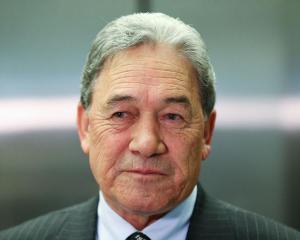Police have pushed out the starting date for phase two of the police reduction of support to mental health events even further, after advice from a governance group for the programme.
After advice from the group - which includes representatives from the Ministry of Health, Health New Zealand (HNZ) and ambulance agencies - the start of phase two will also now be staggered across districts, based on an assessment of their readiness for the changes.
This is the second time the police have rescheduled the start date for phase two of the changes.
The year-long programme of changes was first announced by the former police commissioner Andrew Coster in August 2024, to help alleviate the high demand of mental health callouts on police resources.
In the initial timeline, phase two was set to be implemented between January and March 2025, bringing in two changes:
- Sixty-minute emergency department handovers: Police who have transported a person detained under the Mental Health Act for an assessment will remain for a maximum one hour before departing unless they consider there is an immediate risk to life or safety.
- Mental health custody rules tightened: Police do not consider custody suites to be an appropriate place for mental health assessments to be conducted. Custody rules will ensure people in distress are not being assessed unnecessarily in police custody.
In February - with unions and healthworkers confused about inconsistencies of the rollout across different health districts, as well as the timeline - police said both police and HNZ believed those timelines were "aspirational", and that phase two will instead begin on March 31.
Multiple frontline healthworkers have said over the past few months that they were concerned about escalating violence towards staff by patients, and feared that the police withdrawal could put workers at risk.
On Tuesday, police announced that phase two of the programme will now start on April 14, with a phased implementation across districts.
"Moving the start of this phase by two weeks was recommended by the Mental Health Response Change Programme Governance Group (including police, Ministry of Health, Health NZ, and ambulance agencies), to allow districts to be ready," a statement said.
Each district has been assessed for their readiness to implement the next phase, and as a result, districts will have different starting points for the rollout, it said.
The districts where phase 2 will commence on April 14 are HNZ's Waitematā, Counties Manukau, Waikato (excluding Tokoroa and Taumarunui), Nelson-Marlborough, and West Coast districts.
Assistant Commissioner Mike Johnson said the safety of police and healthcare staff was a priority for police.
"Police will always respond when there is an offence or an immediate risk to life or safety and this will not change," he said.
HNZ director of specialist mental health and addiction Karla Bergquist said multiple agencies had been collaborating on how they responded to mental health, including police, HNZ, Ministry of Health, Hato Hone St John and Wellington Free Ambulance.
"At the heart of these changes is ensuring people receive the right mental health care at the right time, and their safety and that of kaimahi delivering that care is paramount," said Bergquist.
"This is why agencies have committed to safely phasing in these changes and working together to make adjustments to implementation timeframes when necessary," she added.
RNZ has reported that hundreds more health workers were assaulted at work in 2024, according to HNZ data.
About 14,000 assaults on staff by patients, family members and visitors, were recorded across the nation in the two-year period between January 2023 and December 2024.
A nurse and union delegate who has been punched and had a chair thrown at her told RNZ that often staff have had to deal with dangerous situations themselves due to delays in security or police arriving.













